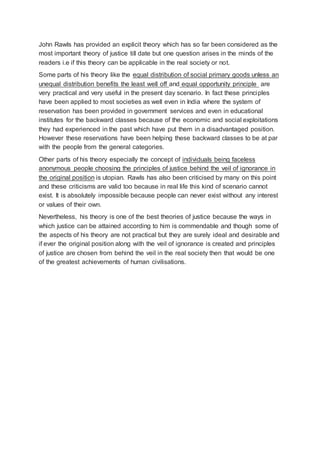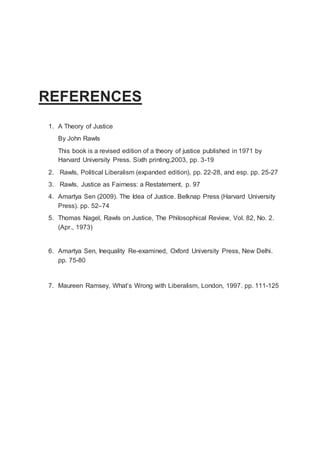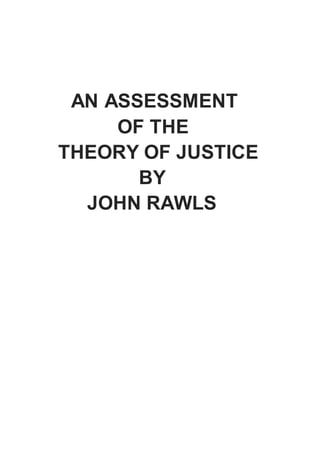John Rawls' theory of justice proposes two principles of justice: 1) Each person has equal basic rights and liberties, and 2) Social and economic inequalities are acceptable only if they benefit society's least advantaged members. Rawls argues these principles would be chosen by individuals in an "original position" behind a "veil of ignorance" where they do not know their abilities or social status. While some aspects like equal opportunity are practical, critics argue Rawls' conception of the original position is unrealistic. Overall, Rawls' theory provides an important framework for thinking about justice, though some elements may not be directly applicable in reality.
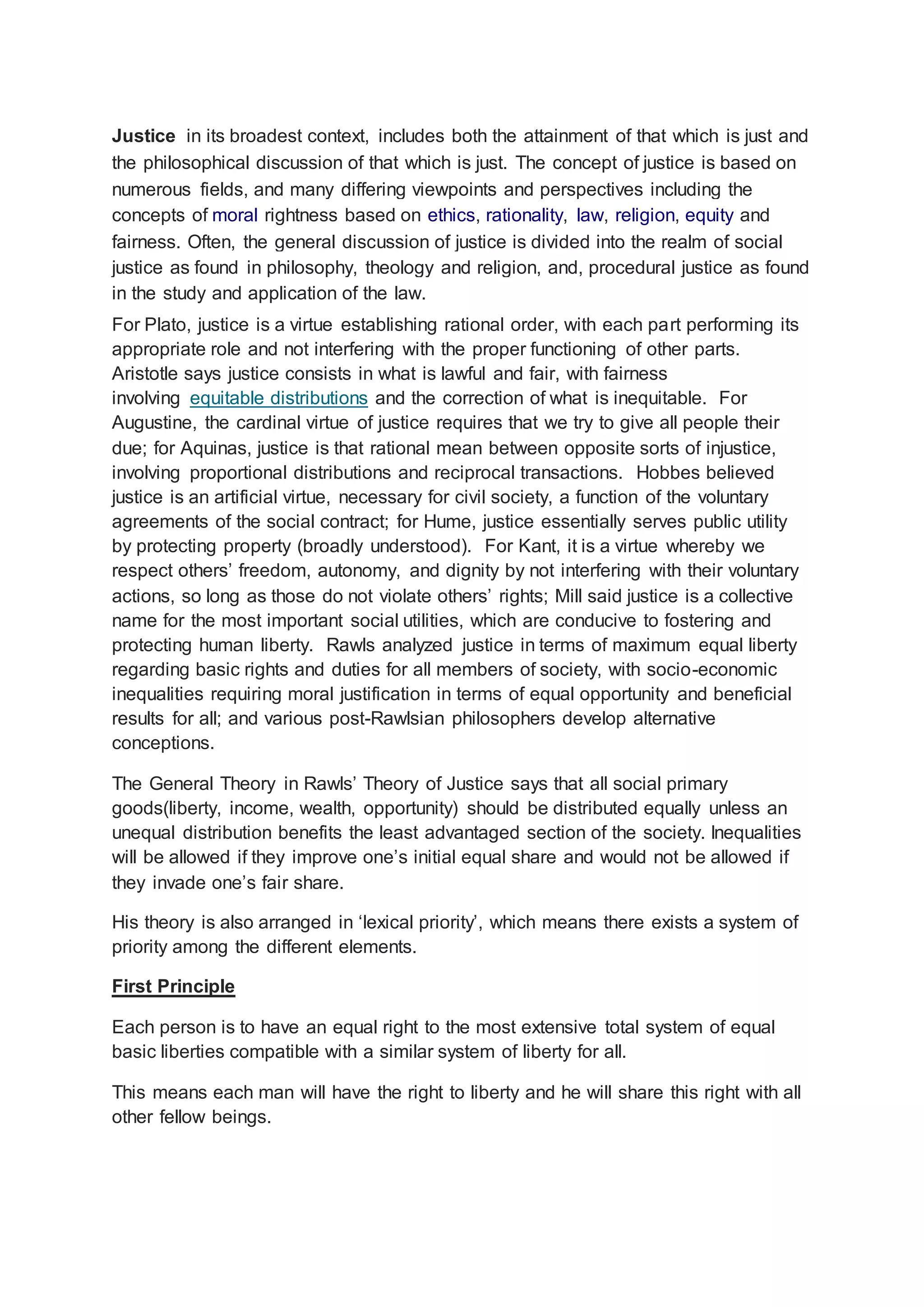
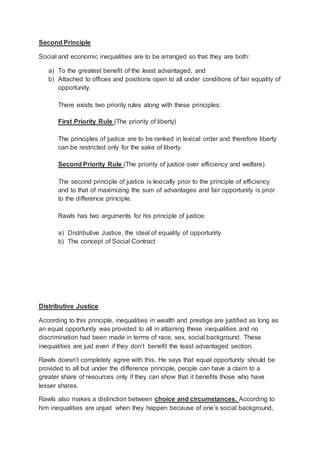
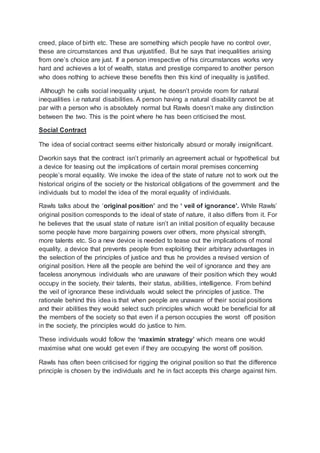
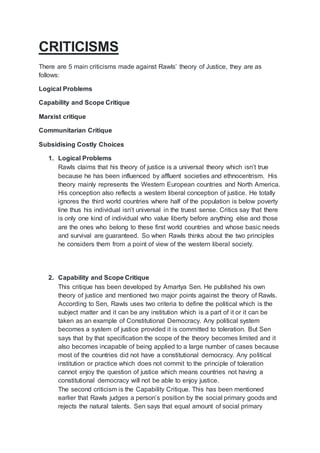
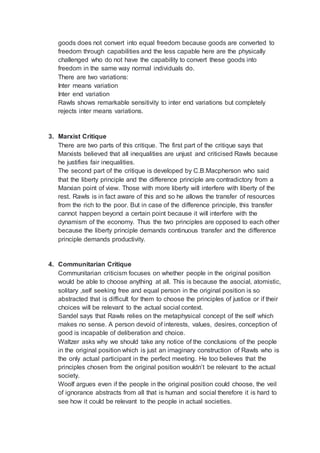
![Rawls has been criticised by feminists as well. They say the model of the self
interested, individualistic, rational, autonomous man in the original position
does not allow for the nurturing, cooperative, empathetic female qualities.
Moreover it is clear that the party to the contract are men who are the heads
of households therefore no representation of women is offered in the original
position.
5. Subsidizing Costly Choices
This argument can be best explained with an example. Let’s take the case of a
tennis player and a gardener. Both belong to the same social background, they have
equal natural talents and they are even given equal amount of resources. The
gardener works really hard on his farm and earns a lot of money by selling fruits and
vegetables whereas the player does occasional farming and works only as much as
it would let him buy a tennis court. Therefore his earning is less compared to the
gardener and now this would not make him at par with the gardener in terms of
wealth. Not according to Rawls difference principle, inequality in benefits would be
justified only when it benefits the least advantaged which here is the player so
following this argument, the state should transfer some of the wealth of the gardener
to the player in order to equalise the income but the problem is, this inequality
happened because of choice, and not circumstances so here lies the drawback in
Rawls theory i.e when inequalities in income are a result of choices and not
circumstances then the difference principle creates rather than removes unfairness.
The Libertarian makes a point that Rawls’ theory doesn’t allow maximum moral
autonomy. They say that while he is justified in saying that talents are undeserved,
this doesn’t mean that the undeserved talent becomes a collective asset. The least
advantaged cannot veto a talented individual’s choice.
Philosopher Allan Bloom, a student of Leo Strauss, criticized Rawls for failing to
account for the existence of natural right in his theory of justice, and wrote that Rawls
absolutizes social union as the ultimate goal which would conventionalize everything
into artifice.[15]
Other criticisms of Rawls' theory have come from the philosopher Gerald Cohen.
Cohen's series of influential papers culminated first in his book, If You're An
Egalitarian, How Come You're So Rich?[16] and then in his later work, Rescuing
Justice and Equality. Cohen's criticisms are levelled against Rawls' avowal of
inequality under the difference principle, against his application of the principle only
to social institutions, and against Rawlsian obsession with the using primary goods
as his currency of equality.](https://image.slidesharecdn.com/6ac3e23e-9da6-423d-a3d6-e8fa6896d7bc-150428101300-conversion-gate02/85/Justice-6-320.jpg)
